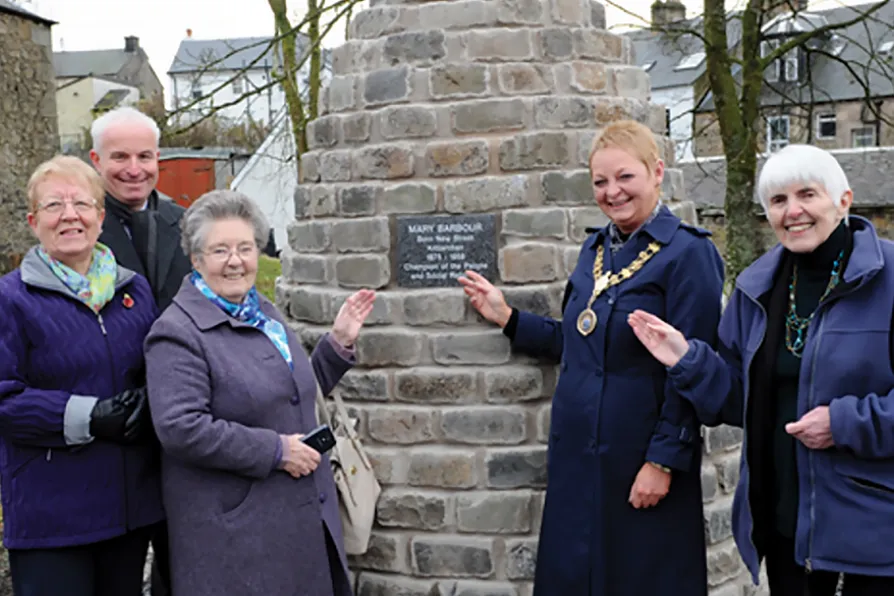MATTHEW HAWKINS contrasts the sinister enchantments of an AI infused interactive exhibition with the intimacies disclosed by two real artists
Maria Fyfe: A working-class hero is something to be
ANGUS REID recommends the brilliant memoir of a Labour activist and politician who never lost sight of her roots

 INDEFATIGABLE: Maria Fyfe (far right) in front of Mary Barbour memorial
INDEFATIGABLE: Maria Fyfe (far right) in front of Mary Barbour memorial
Singing in the Streets
by Maria Fyfe
(Luath Press, £14.99)
IN TELLING the story of her life, from her birth in 1938 in the Gorbals up to the moment she entered Parliament in 1987, Maria Fyfe proves herself to be a writer of rare brilliance.
Her Glasgow memoir Singing in the Streets is fast-paced and dramatic, moving and extremely funny. Head and shoulders above others in the field of political autobiography, she has a poet’s eye for detail and deft picture-painting and a writer’s genius for telling an extraordinary story.
It’s a story of a working-class woman’s self-emancipation and commitment to the emancipation of others. And it’s a love story that is never sentimental but that makes you weep.
Similar stories

RON JACOBS welcomes the long overdue translation of an epic work that chronicles resistance to fascism during WWII

In an exhibition of the graphic art of Lorna Miller, MATT KERR takes a lungful of the oxygen of dissent

JAN WOOLF wallows in the historical mulch of post WW2 West Germany, and the resistant, challenging sense made of it by Anselm Kiefer

CAROLINE FOWLER explains how the slave trade helped establish the ‘golden age’ of Dutch painting and where to find its hidden traces










